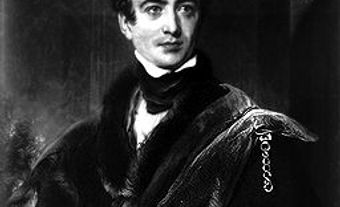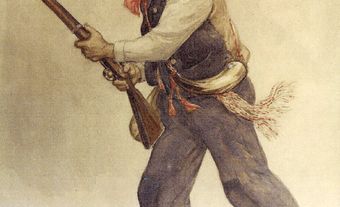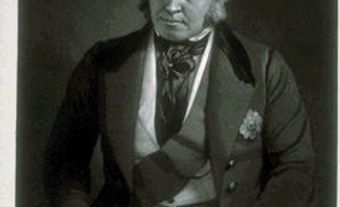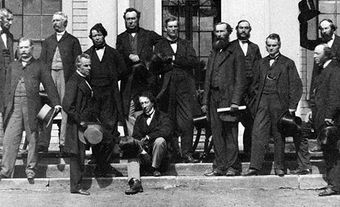John George Lambton, 1st Earl of Durham, Governor General of British North America (1838), politician, diplomat, colonial administrator (born on 12 Apr 1792 in London, England; died on 28 July 1840 at Cowes). Lord Durham acted as Governor General of British North America after the Rebellions of 1837-38. He drafted the Durham report. The report paved the way for responsible government, but also called for the assimilation of French Canadians.

Early Career
Scion of a wealthy Northumberland family, John George Lambton was educated at Eton. He briefly held an army commission and was elected to the Commons in 1813 before being raised to the Lords in 1828. Affiliated with the liberal wing of the Whig party,"Radical Jack" was lord privy seal in 1830 in the Cabinet of his father-in-law, Lord Grey. Durham played a significant part in drafting the great Reform Bill of 1832. He was a difficult colleague and, suffering from poor health, he resigned in 1833 but was ambassador to Russia from 1835 to 1837.
Governor-General of British North America
Primarily to appease the radicals, Prime Minister Lord Melbourne persuaded Lord Durham to become Governor General and High Commissioner to British North America with responsibility for preparing a report on the Canadian Rebellions of 1837-38. On 29 May 1838 Durham landed in Lower Canada. His administration was warmly endorsed by the English minority in Lower Canada, the moderate reformers in Upper Canada and the American government, as well as the authorities at home.
But when the British government refused to sanction an illegal ordinance exiling a handful of political prisoners to Bermuda, Durham submitted his letter of resignation in September 1838 and sailed from Quebec in November 1838 to England.
Durham Report
In January 1839, Lord Durham completed his famous Report on the Affairs of British North America (see Durham report). His major recommendation was to reunite the Canadas in order to accelerate the assimilation of the French Canadians. He characterized them as “a people with no literature and no history.” The union of the Canadas was brought into effect in 1841 (see Province of Canada (1841-67)). He also recommended a reorganization of the system of colonial government, but the British government refused to accept the principle of responsible government (a term for which Durham refused to accept paternity because of its ambiguity) because it was not prepared to accept the inevitability of a form of party government in the colonies.
Lord Sydenham and his successors in the United Province of Canada and Lord Falkland in Nova Scotia accepted in practice the necessity of governing through a majority in the assembly. However, the principle of responsible government was not formally recognized by the British government until 1847. The first avowedly party governments were admitted to power in 1848 in Nova Scotia by Sir John Harvey and then in Canada by Durham's son-in-law Lord Elgin.

 Share on Facebook
Share on Facebook Share on X
Share on X Share by Email
Share by Email Share on Google Classroom
Share on Google Classroom




